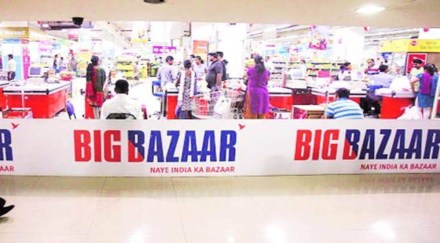Banks may raise the provisions they hold against their exposures to Future Group companies over the next few quarters to 100%, bankers and analysts said. At present, most banks hold 40% provisions against the group’s flagship Future Retail, which slipped in January 2022.
Lenders’ total exposure to the Future Group is pegged at Rs 27,000 crore. As of September 2021, Future Retail’s gross debt stood at Rs 13,346.78 crore, while three of the group’s other listed entities had a combined gross debt of Rs 5,863 crore, according to Bloomberg data. Reliance Industries’ plan to take over 19 entities of the Future Group failed to get secured creditors’ approval last week.
Bank of India (BoI) has already referred Future Retail to the National Company Law Tribunal (NCLT) for insolvency proceedings. Regulatory norms state that lenders to a company must make additional provisions of 20% if a resolution plan for a stressed asset is not found within 180 days of the end of the review period for the asset.
The review period refers to the one-month period following a default. In Future Retail’s case, it ended on January 30.
For now, though, bankers are breathing easy. “We have 180 days to find a resolution plan and since Future Retail slipped on January 30, we have time till around July. Since it is a high-profile case, we expect the case to be admitted soon. But if a resolution plan is not implemented by then, we will need to set aside another 20%,” said a banker with a large public-sector lender.
If the resolution plan for Future Retail is not implemented by July this year, banks will be sitting on 60% provisions against the account. In the meantime, their exposures to other companies from the Future stable could also turn bad, necessitating further provisioning in those accounts. For instance, after Future Enterprises defaulted on March 31, it is set to be classified as a non-performing asset (NPA) by the end of the current month, being a restructured account.
Banks are topping up provisions against Future Enterprises, as it will become an NPA with retrospective effect from the date of implementation of restructuring.
Analysts are of the view that banks will eventually take the level of provisioning to 100% against Future Group exposures. Asutosh Mishra, head of research, Ashika Stock Broking, said that the problems with the Future exposures have been building up over a period of time and what was initially seen as a temporary problem is proving to be more permanent.
“I expect banks to do 100% provisioning over the next two-three quarters. As they make other recoveries, they might utilise those to offset this provisioning,” Mishra said.
